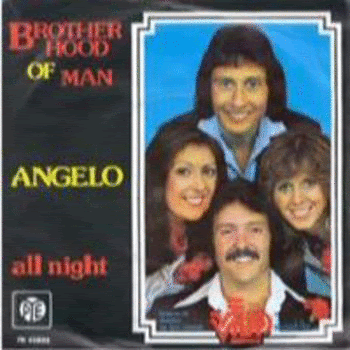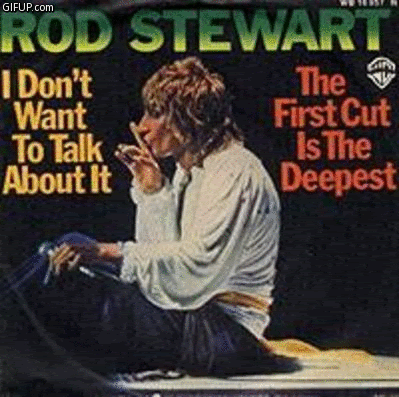 Ah now, this one caused me no end of anguish as a lad. Thanks to my home environment, I was introduced to the world of music - and lots of it - at an early age. Bowie, Pink Floyd, Slade et al always seemed to be playing in the background as I was growing up and, as far as The Beatles went, I knew every song off the 'Blue' album by heart before I'd even started junior school; not by indoctrination, but because I genuinely liked them. I still do in fact, but in point of fact before punk and the "No Elvis, Beatles and the Rolling Stones" scorched earth policy of The Clash, there didn't seem to be any alternative but to like them. Because the equation ran: The Beatles = the best band of all time and at age eight, I wasn't inclined to challenge.
Ah now, this one caused me no end of anguish as a lad. Thanks to my home environment, I was introduced to the world of music - and lots of it - at an early age. Bowie, Pink Floyd, Slade et al always seemed to be playing in the background as I was growing up and, as far as The Beatles went, I knew every song off the 'Blue' album by heart before I'd even started junior school; not by indoctrination, but because I genuinely liked them. I still do in fact, but in point of fact before punk and the "No Elvis, Beatles and the Rolling Stones" scorched earth policy of The Clash, there didn't seem to be any alternative but to like them. Because the equation ran: The Beatles = the best band of all time and at age eight, I wasn't inclined to challenge.When 'Mull Of Kintyre' appeared, the ten year old me reasoned out an equation for myself that seemed unquestionable; to whit: Wings were Paul McCartney's 'new' band after The Beatles split. Paul McCartney was an ex Beatle. Paul McCartney wrote 'Mull Of Kintyre'. 'Mull Of Kintyre' was at number one for a million years so therefore 'Mull Of Kintyre' was one of the best songs ever written. The logic seemed inescapable, but there was one fly in the ointment. I didn't like it.
Of course, I didn't dare say anything to the contrary lest I be labelled a know nothing musical simpleton - '"What do you mean you don't like 'Mull Of Kintyre'???? It's a two million selling number one hit. You fool", yet the fact remained that I simply couldn't stand listening to it. Now, older, wiser and less inclined to give a toss what anybody thinks, I still don't like it, only now I'm more than happy to tell you why.
For a start, 'Mull Of Kintyre' sounds more like some hastily knocked up prefab framework rather than any finished article. And that’s probably because the 'Mull Of Kintyre' is about the Mull of Kintyre - McCartney's rural bolt hole where he owned a recording studio and the song is basically the view from his window. All very nice I’m sure, but the sixth form poetry of the "dark distant mountains with valleys of green" smacks more of an "I'm much richer than you" face rubbing exercise than anything approaching creating an evocative mood of longing for a place far off in space and time. Or to put it another way, McCartney's song doesn't in any way want to make me want to visit, not when its whole ambience is single dimension, cardboard flat with about as much substance as a drunken campfire nursery rhyme.
To my mind, its success is totally inexplicable; the strummed opening verses have the hesitancy of a tune being made up on the spot, giving the whole an aura of a demo, an unfinished piece of doggerel knocked out during studio downtime and then tarted up with some bagpiped blare to flesh out the sound. McCartney had released far better songs since The Beatles that hadn't enjoyed a fraction of its popularity. Not that his post Beatles output was a treasure chest of riches, but he did mange to strike gold on a few occasions whereas almost everything that came after was, shall we say, disappointing.
In fact, one of my many pet theories is that 'Mull Of Kintyre' is the song that effectively finished off McCartney as a songwriter. Always at his best when keeping things unfussy and direct, McCartney's post 'Mull' output seemed to react to its success by digging at the exact opposite seam and always looking for the next overproduced bit of clever cleverness instead of relying on with his talent for writing a clean underlying song.
'Mull Of Kintyre' is unfussy true, but it's unfussy to the point of being trite. I don't think I've ever met anybody with a kind word to say about it either then or since, and just how fondly regarded is the biggest selling single of the seventies now? McCartney himself has released four live albums since 1977 (most either doubles or triples too) yet 'Mull Of Kintyre' appears on none of them, to the apparent abject consternation of nobody. Except perhaps the Scottish Tourist Board.











.jpg)




